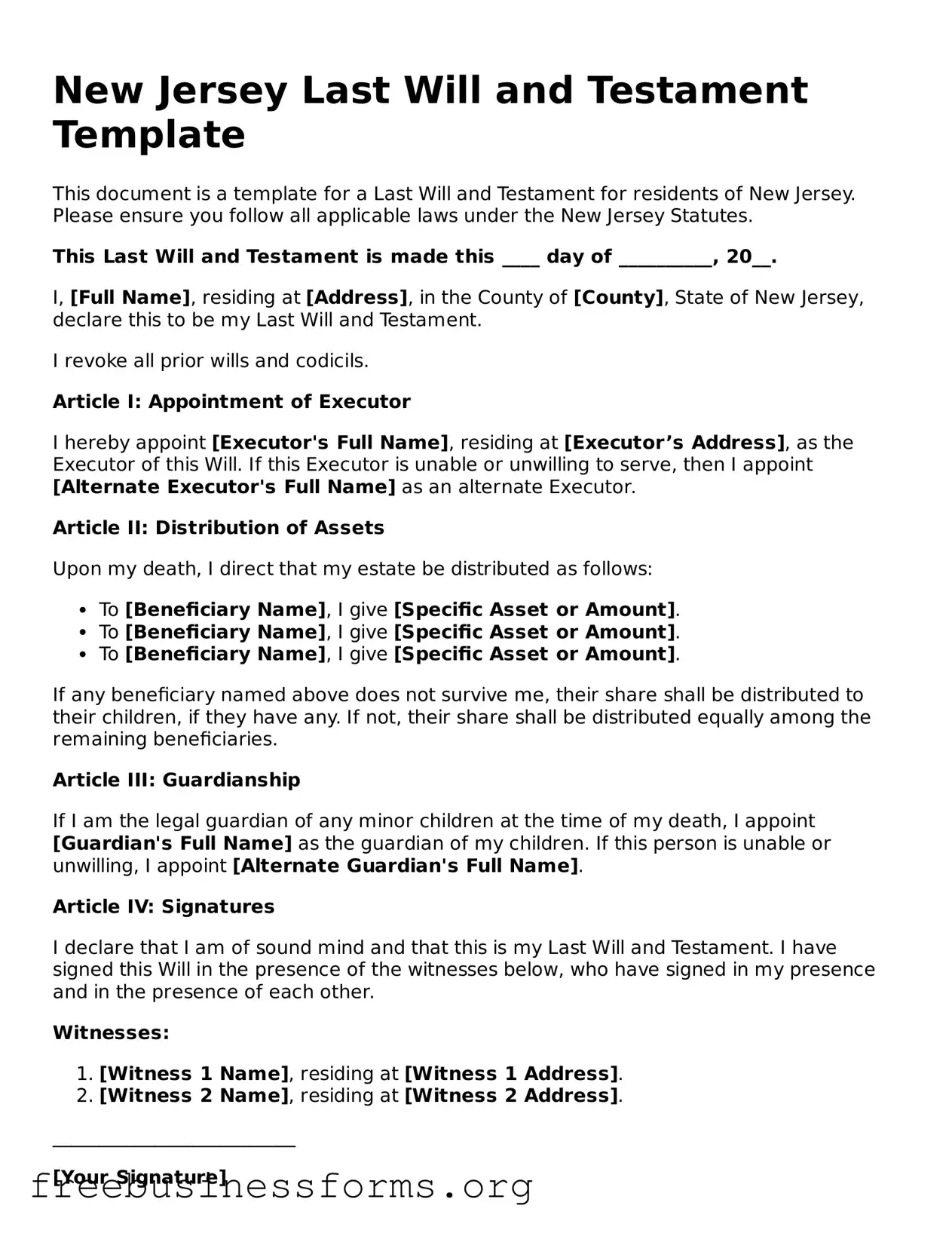Blank Last Will and Testament Template for New Jersey
A Last Will and Testament is a legal document that outlines how a person's assets and affairs should be handled after their death. In New Jersey, this form allows individuals to specify their wishes regarding the distribution of their property, guardianship of minor children, and other important matters. Understanding this form is essential for ensuring that your intentions are honored and your loved ones are cared for.
Open Form Here

Blank Last Will and Testament Template for New Jersey
Open Form Here

Open Form Here
or
↓ PDF File
Quickly complete this form online
Complete your Last Will and Testament online quickly — edit, save, download.